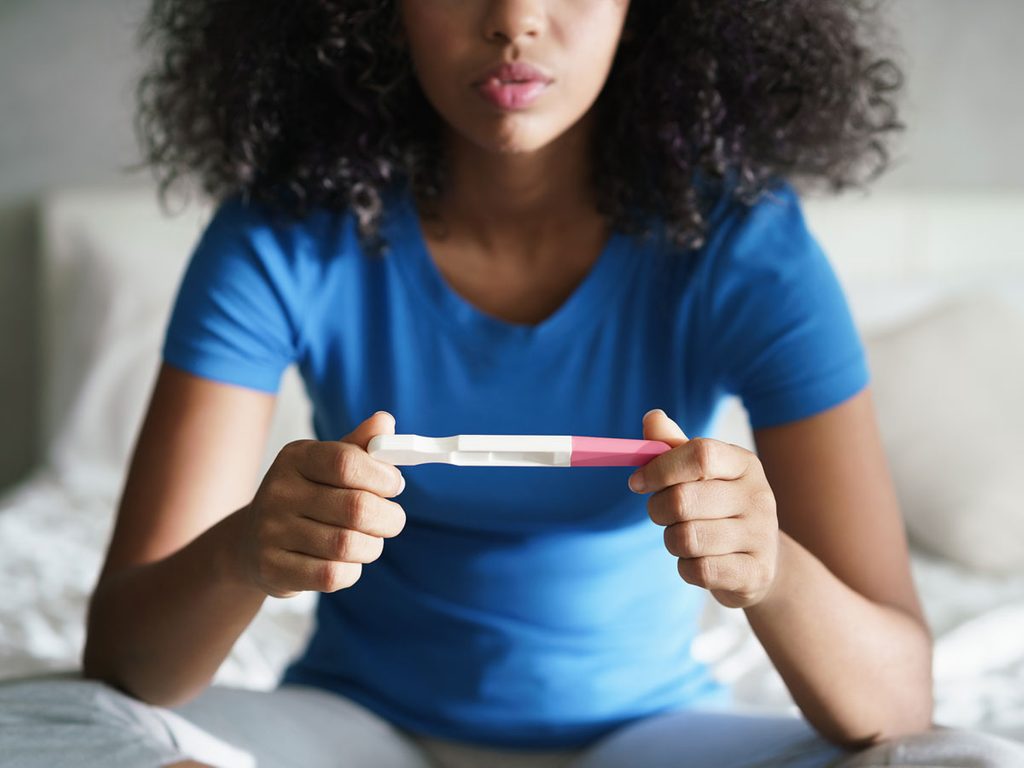Adaptogens for Fertility: What You Need to Know

Adaptogens are getting a lot of attention in the fertility space. But are they worth the hype? Experts weigh in.
For some women, getting pregnant is hard. Roughly one in six couples in Canada experience infertility. Conventional fertility treatments, such as in vitro fertilization (IVF) and intrauterine insemination (IUI) are among the most well-known strategies to help increase your chance of conceiving, but adaptogenic plants (commonly known as adaptogens) are also gaining a lot of attention in the fertility space as a natural approach to better your odds. We asked experts to set the record straight about adaptogens and whether or not they are beneficial for fertility.
What are adaptogens?
Adaptogens are non-toxic, plant-based agents that assist in your body’s ability to respond to stress. Classified as “natural health products” under Health Canada, these herbal remedies can be purchased at your local health food store.
Why everyone is talking about adaptogens
Dr. Tracy Malone, a naturopathic doctor and cofounder of Conceive Health (a naturopathic clinic focused on fertility), speculates that patients struggling with infertility tend to gravitate towards adaptogens because they are touted as a natural solution to help modulate stress and curb symptoms of depression and anxiety.
Fertility patients tend to suffer from significantly higher levels of stress, depression, and anxiety, says Malone. “They are continuously disrupted with early morning appointments, injections, hormones, expense, uncertainty, and so much testing.”
What the research says
Malone says that research has shown that stress levels in patients dealing with infertility are extremely high. A study published in 2018 in Science Daily showed that high levels of stress are associated with lower odds of conception for women.
Dr. Sony Sierra, a reproductive endocrinologist and infertility specialist at TRIO Fertility in Toronto, agrees. “I do believe there is a relationship between stress and infertility,” she says.
Stress is our body’s response to feeling threatened or harmed in some way. “With respect to the reproductive function in situations of stress, some women report that their cycles become irregular,” says Sierra. “Ovulatory function may be affected, therefore making it difficult to conceive during that time.”
Ultimately, every woman’s stress level — and ability to cope with stress — is different.
(Related: Am I Crazy for Trying to Get Pregnant During a Pandemic?)
Can certain adaptogens increase fertility?
Malone says yes, it’s possible. She often suggests adaptogens for patients preparing for fertility treatment to help assist with chronic stress patterns, such as chronic anxiety or a general lack of daily self-care around food, sleep, exercise, and mindfulness.
For instance, ashwagandha can help modulate cortisol production and curb anxiety, she says. “Most patients are quite anxious, and this plant is safe to take during preconception.” It can also help improve motility, structure, and function of sperm in males, which is an issue in up to 40 to 50 percent of cases of infertility.
Licorice is useful in cases of extreme fatigue or burnout. But if you have pre-existing high blood pressure, Malone warns to be cautious when using this plant. Licorice can gently raise blood pressure, and if taken in large doses, can deplete potassium levels, she says.
And, typically, “I’ll use Maca, known as Peruvian ginseng, for patients who have low hormone levels and low libido,” Malone adds.
While adaptogens can be helpful during conventional fertility treatment in some patients, some can be counterproductive, so it’s important to judge their use on a case-by-case basis.
And Malone says you should always consult with a licensed infertility specialist before trying adaptogens, to ensure they are compatible with any fertility medication you may already be taking.
(Related: 10 Facts Every Woman Needs to Know About Fertility)
When is the right time to consider natural treatment for infertility?
Sierra says natural treatments can be seen as assisted reproductive therapy to conventional fertility treatment. Speak with naturopathic doctors who have endocrinology expertise and are familiar with fertility treatments, says Sierra.
“At TRIO Fertility, we have naturopathic doctors on-site, and patients are encouraged to consult with one while waiting to see an infertility specialist and during their treatment at any phase,” she says. “Especially in cases where women have Polycystic Ovary Syndrome (PCOS), a hormonal disorder that’s common among women of reproductive age, or reached an advanced maternal age (35 years or older), the addition of naturopathic intervention has been found to be very helpful.”




